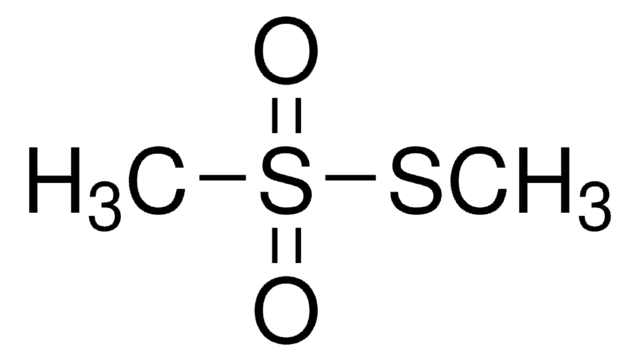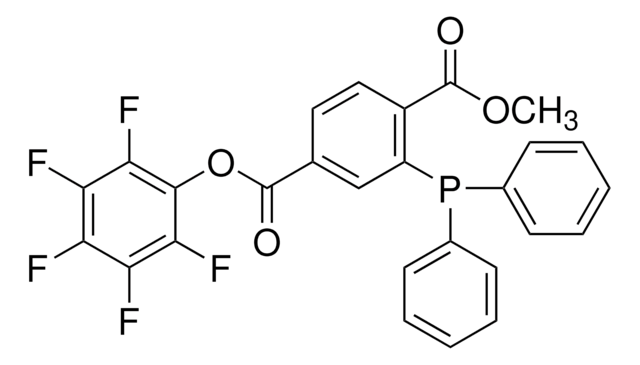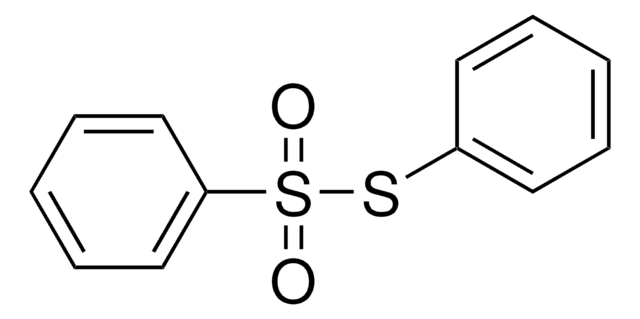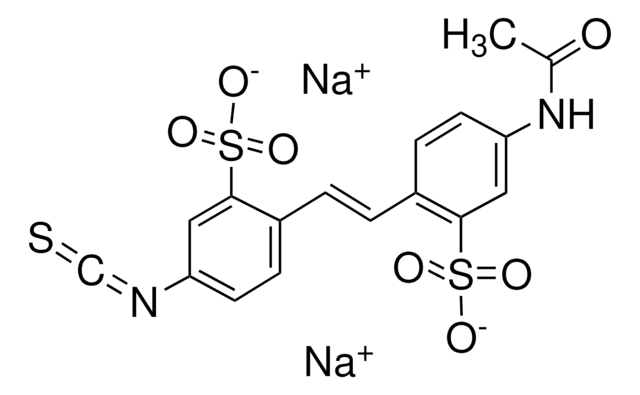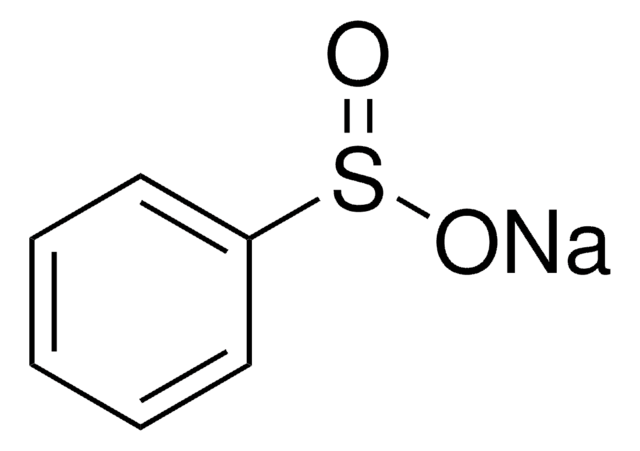684538
Sodium methanethiosulfonate
95%
Synonym(s):
Methanesulfonothioic acid sodium salt, Sodium methylthiosulfonate
Sign Into View Organizational & Contract Pricing
All Photos(2)
About This Item
Empirical Formula (Hill Notation):
CH3O2S2Na
CAS Number:
Molecular Weight:
134.15
EC Number:
MDL number:
UNSPSC Code:
12352001
PubChem Substance ID:
NACRES:
NA.22
Recommended Products
Quality Level
Assay
95%
form
crystals
mp
265 °C (dec.)
SMILES string
CS(=O)(=O)S[Na]
InChI
1S/CH4O2S2.Na/c1-5(2,3)4;/h1H3,(H,2,3,4);/q;+1/p-1
InChI key
JFTZUZWJGUCSTE-UHFFFAOYSA-M
Signal Word
Warning
Hazard Statements
Precautionary Statements
Hazard Classifications
Eye Irrit. 2 - Skin Irrit. 2 - STOT SE 3
Target Organs
Respiratory system
Storage Class Code
11 - Combustible Solids
WGK
WGK 3
Personal Protective Equipment
dust mask type N95 (US), Eyeshields, Gloves
Choose from one of the most recent versions:
Already Own This Product?
Find documentation for the products that you have recently purchased in the Document Library.
Customers Also Viewed
Tatsuro Nakagawa et al.
PloS one, 7(3), e32372-e32372 (2012-03-10)
Olfactory receptors (Ors) convert chemical signals--the binding of odors and pheromones--to electrical signals through the depolarization of olfactory sensory neurons. Vertebrates Ors are G-protein-coupled receptors, stimulated by odors to produce intracellular second messengers that gate ion channels. Insect Ors are
Yonghong Bai et al.
The Journal of general physiology, 138(5), 495-507 (2011-11-02)
Cystic fibrosis transmembrane conductance regulator (CFTR) is a member of the ATP-binding cassette (ABC) transporter superfamily, but little is known about how this ion channel that harbors an uninterrupted ion permeation pathway evolves from a transporter that works by alternately
Sandra Scanu et al.
Chembiochem : a European journal of chemical biology, 13(9), 1312-1318 (2012-05-24)
Cytochrome f (Cyt f) and plastocyanin (Pc) form a highly transient complex as part of the photosynthetic redox chain. The complex from Nostoc sp. PCC 7119 was studied by NMR relaxation spectroscopy with the aim of determining the orientation of
Xiaolong Gao et al.
Biophysical journal, 104(4), 786-797 (2013-02-28)
Previous cysteine scanning studies of the cystic fibrosis transmembrane conductance regulator (CFTR) chloride channel have identified several transmembrane segments (TMs), including TM1, 3, 6, 9, and 12, as structural components of the pore. Some of these TMs such as TM6
Jamie S Park et al.
Molecular pharmacology, 80(4), 735-746 (2011-07-28)
Inhibitor and substrate interactions with equilibrative nucleoside transporter 1 (ENT1; SLC29A1) are known to be affected by cysteine-modifying reagents. Given that selective ENT1 inhibitors, such as nitrobenzylmercaptopurine riboside (NBMPR), bind to the N-terminal half of the ENT1 protein, we hypothesized
Our team of scientists has experience in all areas of research including Life Science, Material Science, Chemical Synthesis, Chromatography, Analytical and many others.
Contact Technical Service